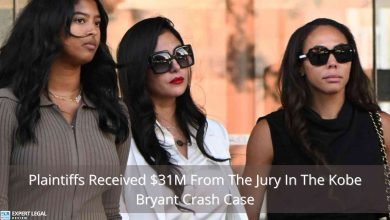Solicitors Lose Appeal On £2m Invoice That Was Billed To DBA

The solicitors’ effort to collect a $2 million compensation from such an insolvency client for services done under a damages-based contract was denied by the Court of Appeal. After hearing arguments this week, the judges in Tonstate Company Ltd &Ors .v. Candey Limited rejected the argument, saying that they would deliver written reasons in due time.
The Supreme Court Of The Kingdom
Solicitors Act section 73 authorizes the court to grant a charging order to a solicitor over assets recovered or maintained in litigation. The parties argued about this provision. Zagarolo concluded that Candey was not entitled to receive payment from Wojakovski or equitable ownership in his interests in Tonstate in July 2021.
City lawyers argued that their previous client David Wojakovski had benefited from their work when Tonstate agreed to allow him to keep some of the company’s stock.
Following the firm’s allegation that a client’s shares had been preserved in litigation, the court rejected its appeal. Alamy is the source of this information.
Attorney Ben Williams QC argued that Wojakovski had maintained 25% of his assets and that the company could recover its cost depending on both what was recovered and what was saved. Wojakovski was represented by Ben Williams QC.
It was asserted that Candey would have not consented to an arrangement in which it was obliged to win ‘absolutely everything’ to get any remuneration.
According to him, there was a valuable asset available for sale. If this attempt doesn’t succeed and you do not win, then you’ve gained something. There’s a fund which you can make payments for it, he stated.
For Williams, it wasn’t “plucked out of thin air” when asked by Mr. Justice Arnold about the $2 million invoices. “Clearly can be critiqued in many areas for not being completely fleshed out” is how he described the DBA inked with the client.
Respondents to an appeal argued that the claim was an effort by the lawyers to “push themselves towards the front of the line of creditors” for their insolvent client. He said Candey had no entitlement to payment because Wojakovski’s pre-existing property had been preserved in the DBA.
What exactly is a database administrator?
Client and lawyer enter into a “no win, no fee” litigation-risk-sharing “DBA,” where the lawyer’s compensation (agreed fee, VAT, and specified expenditures) is conditional upon a successful outcome.
What happened in this case?
The Appellant’s (MsZuberi) bank was accused of mis-selling derivative products in 2012, which led to the case Zuberi v Lexlaw.
DBAs were set up by Plaintiff and Defendant (her former lawyer, Lexlaw) in order to be stable of her lawsuit against a financial institution. Appellant has the right to terminate the DBA at any moment, as stipulated in the DBA. Her lawyer’s costs and expenditures up to the date of termination would therefore be her responsibility if she terminated her relationship with him.
According to the Court of Appeal, a language in a DBA allowing the attorney to recover fees if the client terminates the DBA before a settlement is reached does not invalidate the DBA, hence the appeal was denied.
Although the Chief Justices of Appeals ruled in the same way as the court, their reasoning was different.
LJs Lewison and Coulson found the DBA Regulations 2013 should be read narrowly and only with regard to the terms under which lawyers are compensated for losses. That’s why the DBA and regulations didn’t have any influence on any mention to an alternate payment method. The DBA was valid and enforceable at all times.
Even the termination clauses were deemed to be part of a DBA by Newey LJ because of this.




